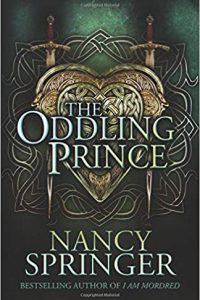Paul Di Filippo Reviews Bewilderment by Richard Powers
 Bewilderment , Richard Powers (Norton 978-0393881141, 288pp, $27.95) September 2021.
Bewilderment , Richard Powers (Norton 978-0393881141, 288pp, $27.95) September 2021.
Since his first book in 1985, Richard Powers has published a dozen novels, with this newest one being his lucky thirteenth. In one way or another, to one degree or another, they have all manifested deep concern with matters of technology and culture, the core remit of SF. Some, such as Galatea 2.2, have been flat-out undeniable science fiction. Others have trended closer to mainstream literary fiction. His exceptional oeuvre as a whole has certainly earned him recognition as a leading author of 21st-century fantastika. Bewilderment upholds that distinction. It’s a humanist deep dive into matters of neuro-divergence, the acceptance, troubles, and techno-amplification of same.
A delightfully candid and vivid “Note from the Author” tips Powers’s hand right from the start. He confesses his lifelong fascination with Flowers for Algernon, his amazement at the plasticity of juvenile brains, and his concern for “rewilding” our damaged planet. In this small compass, then, we have the map of the novel—but knowing the terrain ahead of time in no way diminishes the pleasures or surprises of our reading.
The book is narrated by astrobiologist Theo Byrne. A youngish fellow, he has been widowed now for two years. His wife Aly died in a car crash where the precipitating cause is pretty well known: she seems to have swerved instinctively to avoid running over a wild animal. This is entirely consonant with her whole being and presence as a professional crusader for the planet and its flora and fauna. However, there is the slimmest of rumors or suspicions that she might have wanted to end it all, possibly from despair over the miserable state of the globe.
Whatever the cause, she’s gone, and she’s left her husband deeply saddened and grief-stricken. (He sees ghostly illusions of his wife from time to time, although he mostly manages the pain well.) Her departure has done much more damage to their nine-year-old son, Robin. A child somewhere “on the spectrum” (“So far the votes are two Asperger’s, one probable OCD, and one possible ADHD.”), Robin is sharp-witted, brainy, devoted, and creative. He is also often scared, stubborn, angry, and even violent. Theo has his hands full trying to guide the boy through difficulties at school and home. Luckily, Robin has inherited his mother’s passion for the environment and its non-human creatures. This interest extends to Theo’s profession of discovering exoplanets. The father invents strange new worlds with stefnal scenarios for the boy, and they take virtual tours of them.
The first third of the book is a slow-paced, intimate, pleasantly meandering introduction to the domestic life of the Byrne household, thick with much back and forth between father and son. We get all the family backstory, plus immersion into Robin’s capricious nature and predilections.
I should mention two things at this juncture. The first is that this universe is revealed to be one that is roughly parallel with ours, but not identical. There’s a megalomaniacal US President, various climate change disasters, etc. TED Talks are COG Talks and so on:
One night, the news channel I distrusted the least cut from the fading constitutional crisis to an interview with the world’s most famous fourteen-year-old. The activist Inga Alder had launched a new campaign, biking from her home near Zurich to Brussels. Along the way, she was recruiting an army of teenage cyclists to join her and shame the Council of the European Union into meeting the emissions reductions they had long ago promised.
This is a nicely estranging move.
The second quirk is that while all other dialogue in the book is delivered in the conventional manner—between quotation marks—Robin’s speech is always represented by italicized lines sans quotes. More on my deductions about this quirk later.
At the one-third mark comes the major plot twist. A fellow scientist acquaintance of Byrne’s, one Martin Currier, is working on a research project named Decoded Neurofeedback. While in an MRI device, the subject’s brain waves are recorded and fed back to them, thus allowing for reinforcement of desired mental states. Both Byrne and Aly were Currier’s guinea pigs some years ago. Now Currier wants to enlist Robin also in the trials, since if his device can improve the boy’s wilder mental impulses, it will have proved its therapeutic use (good for funding requests).
Theo allows Robin to enroll, and there is indeed daily practical improvement. But then Currier goes one step further. He plays back into Robin’s brain the recordings of Aly’s mind.
Now the novel shifts into full Daniel Keyes mode, as Robin becomes “more than human” (creepily seeming to replicate his mother’s thought processes). Before you can say “media firestorm,” the boy and his save-the-planet campaign are a viral sensation. Theo rides the tidal wave as best he can. But can anyone prevent the crash that looms ahead?
Powers’s character study of Robin is the paramount achievement here, charting his arc from gifted but not unique, through uniqueness, and then, inevitably, back to a lower plateau. It’s a heartbreaking passage, but also one with the dimensions of a fated tragedy not unredeemed by a legacy of accomplishments. Of course, Powers also succeeds in limning the dilemma of every thoughtful and caring individual when faced with Anthropocene issues. And he navigates the tension between microcosm and macrocosm skillfully.
Which do you think is bigger? Outer space . . . ? He touched his fingers to my skull. Or inner?
Words from Stapledon’s Star Maker, the bible of my youth, lit up in a backwater of my brain. I hadn’t thought about the book in decades. The whole cosmos was infinitely less than the whole of being…the whole infinity of being underlay every moment of the cosmos.
“Inner,” I said. “Definitely inner.”
Note that italicized speech from Robin in the first lines above. Why delivered in that formal mode? It all ties into the ending, I believe. “And then one day, my son is in there, inside my head as sure as life. My wife, too, still inside him. What they felt, then, I now feel. Which is bigger, outer space or inner?”
Narrating the book, Theo Byrne is channeling a voice inside his head that is not actually audible to anyone else. He’s listening to “Rush That Speaks,” as in Crowley’s Engine Summer.
Read this book as a fusion of Gerrold’s The Martian Child and Pinsker’s We Are Satellites. Or as simply as one more fine and distinctive production from Richard Powers.
 While you are here, please take a moment to support Locus with a one-time or recurring donation. We rely on reader donations to keep the magazine and site going, and would like to keep the site paywall free, but WE NEED YOUR FINANCIAL SUPPORT to continue quality coverage of the science fiction and fantasy field.
While you are here, please take a moment to support Locus with a one-time or recurring donation. We rely on reader donations to keep the magazine and site going, and would like to keep the site paywall free, but WE NEED YOUR FINANCIAL SUPPORT to continue quality coverage of the science fiction and fantasy field.
©Locus Magazine. Copyrighted material may not be republished without permission of LSFF.







